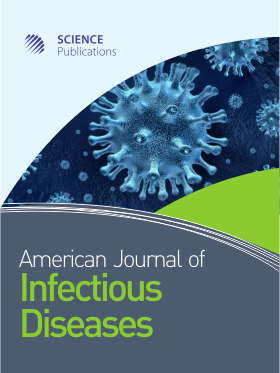Bioinhbition of Diarrhogenic Gram-negative Bacteria using the Tukey-HSD Test
- 1 University of Ibadan, Nigeria
Abstract
A variety of probiotics show promise as effective therapies in the control of diarrhoea, however, diets and geographical locations affect probiotic therapy. In this pilot study, four indigenous probiotic candidates, Lactobacillus acidophilus AAOOL4, L. reuteri AAOOCH1, L. plantarum AAOO25NN and L. delbrueckii AAOOT20 were investigated for their in vitro bactericidal effects on bacterial pathogens implicated in infantile diarrhoea using the Tukey test. The inoculum levels were between 5 log10 cfu g-l at 1% (inoculum per ogi sample) for 96 h at 35°C. The bactericidal effect of the probiotic candidates on the microbial load of the inoculated samples was determined by plate counts 24 hourly. Significant differences (p<0.05) were observed between the control (4.79-5.28 log10 cfu ml-1) and the inoculated samples AAOOL4 (<1.00-4.61 log10 cfu ml-1), AAOON25 (<1.00-4.71 log10 cfu ml-1), AAOOCH1 (<1.00-4.67 log10 cfu ml-1) and AAOOT20 (<1.00-4.78 log10 cfu ml-1), especially the mixed probiotic culture-inoculated samples, MLC (<1.00-4.56 log10 cfu ml-1). The diarrhogenic candidates were not within detectable limits between 72 and 96 h in most of the samples, indicating their in vitro bactericidal effects. The indigenous probiotic candidates can therefore, serve in the control of infantile diarrhoea.
DOI: https://doi.org/10.3844/ajidsp.2008.162.167

- 3,711 Views
- 2,335 Downloads
- 0 Citations
Download
Keywords
- Antibiotics
- bactericidal
- biotherapy
- diarrhoea
- indigenous
- infantile
- probiotics
- Tukey statistical test
